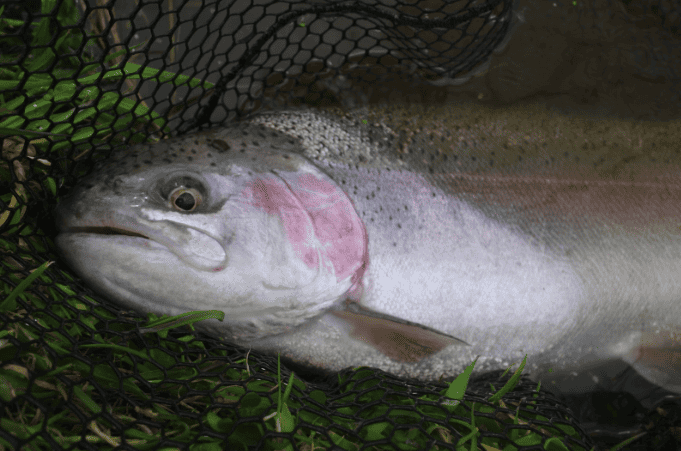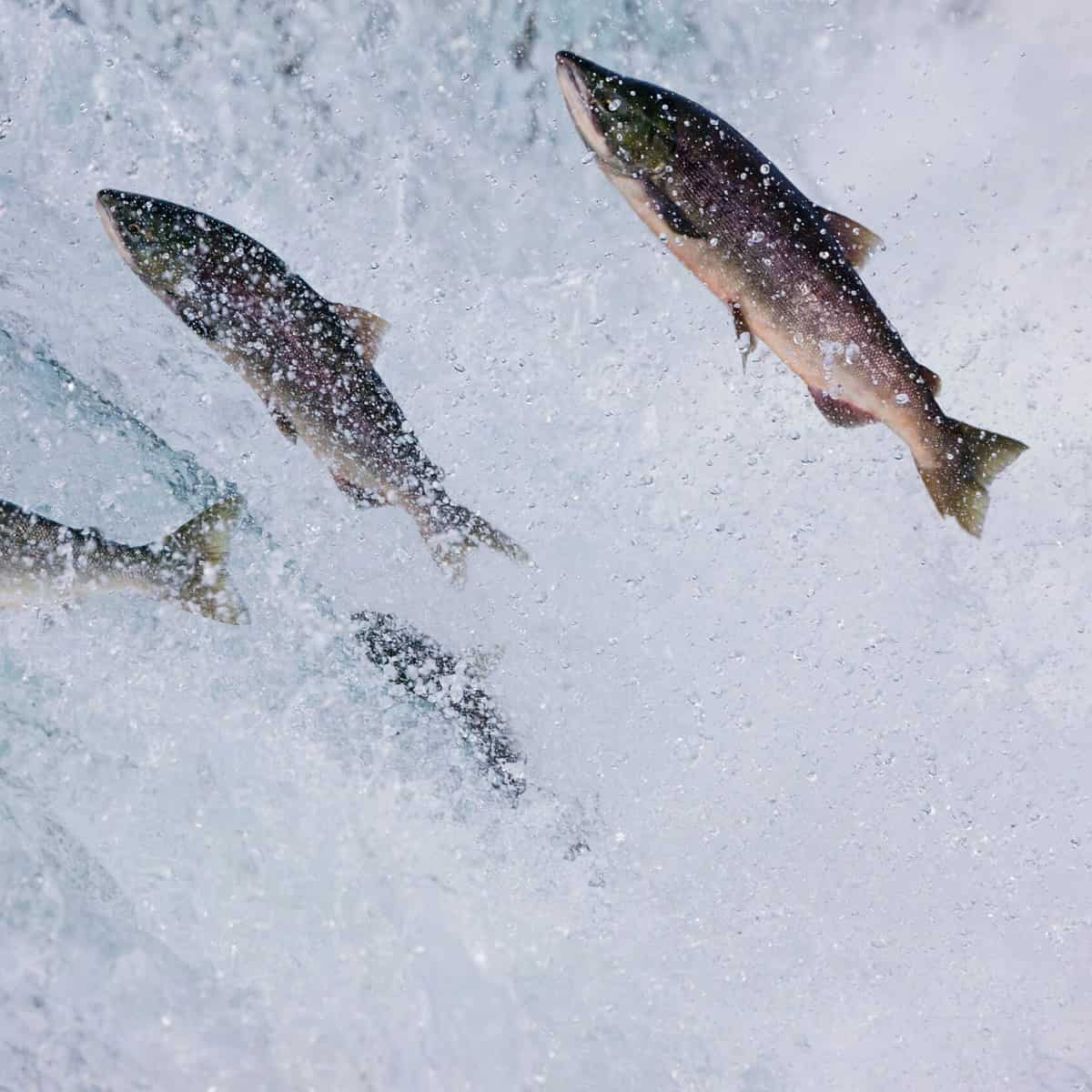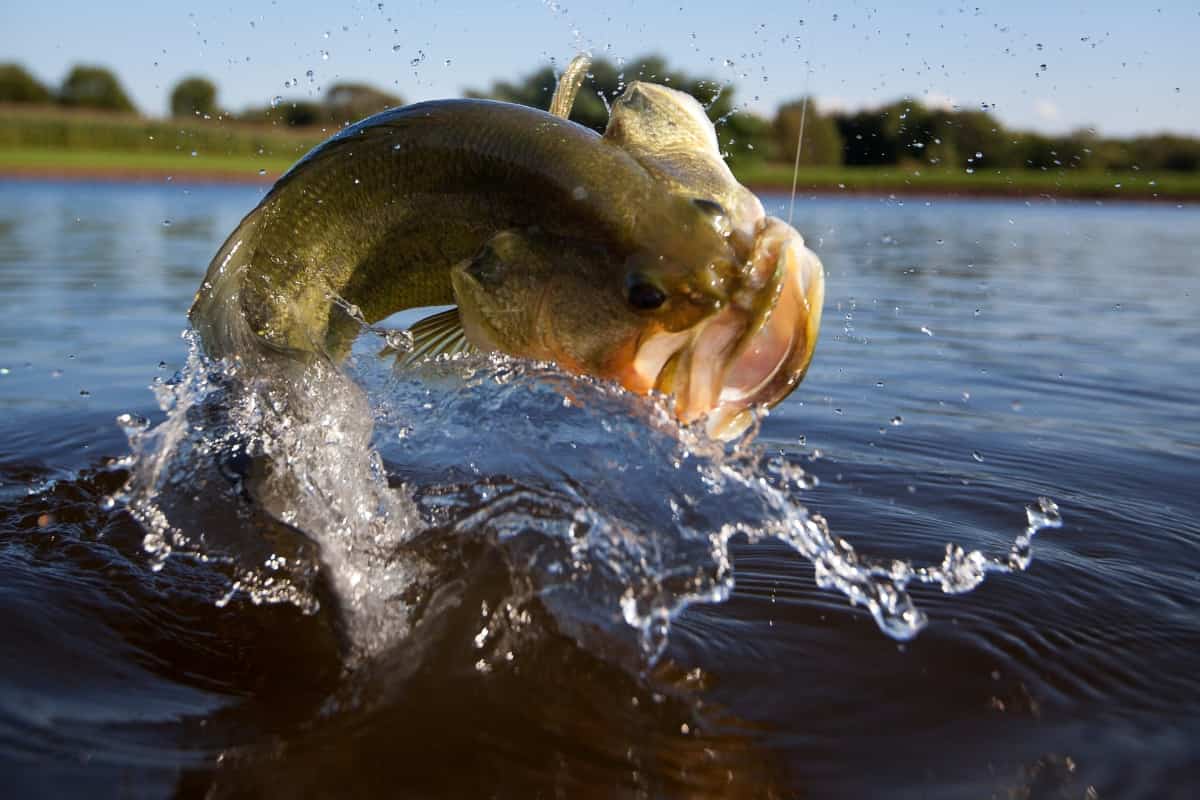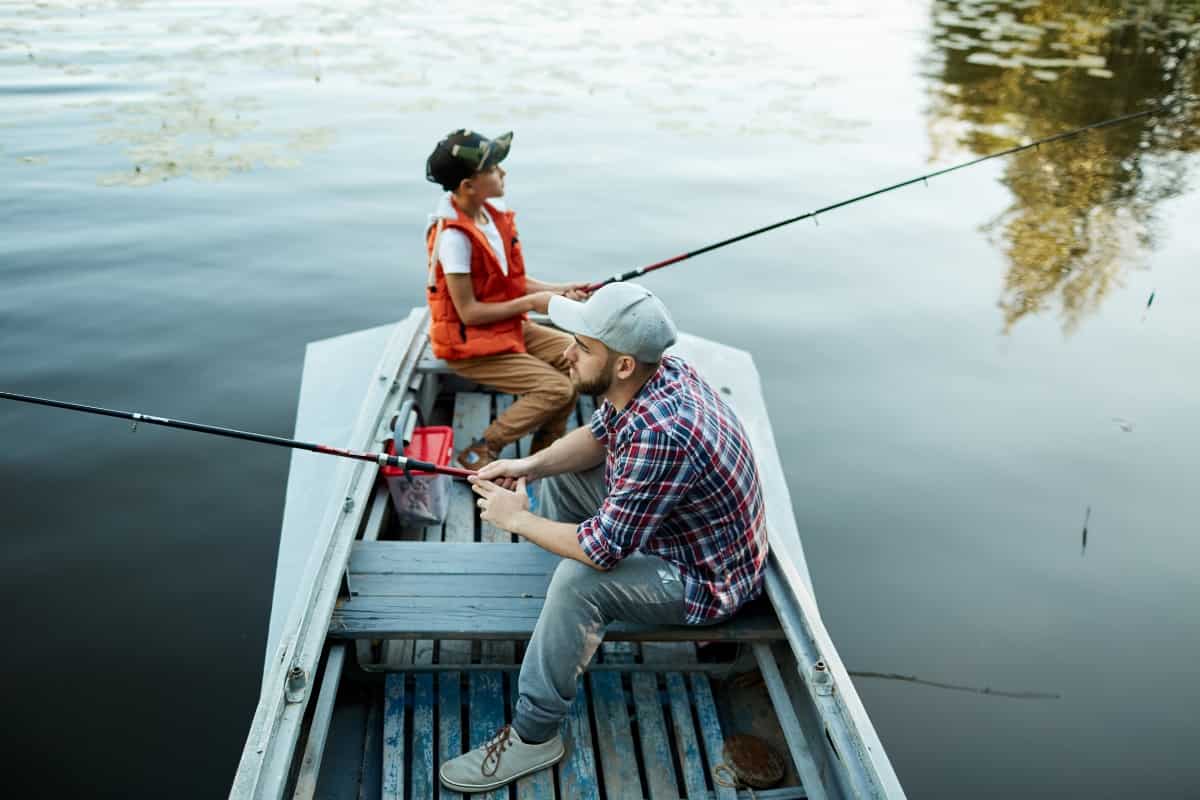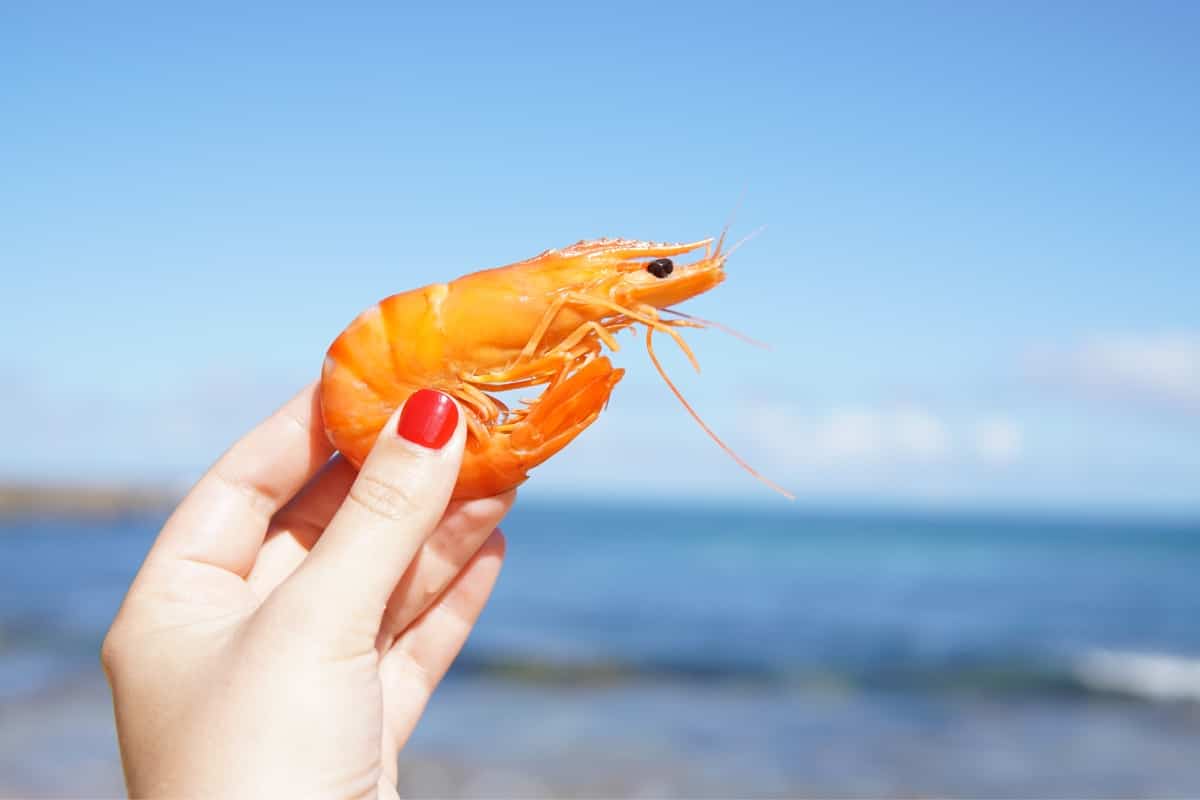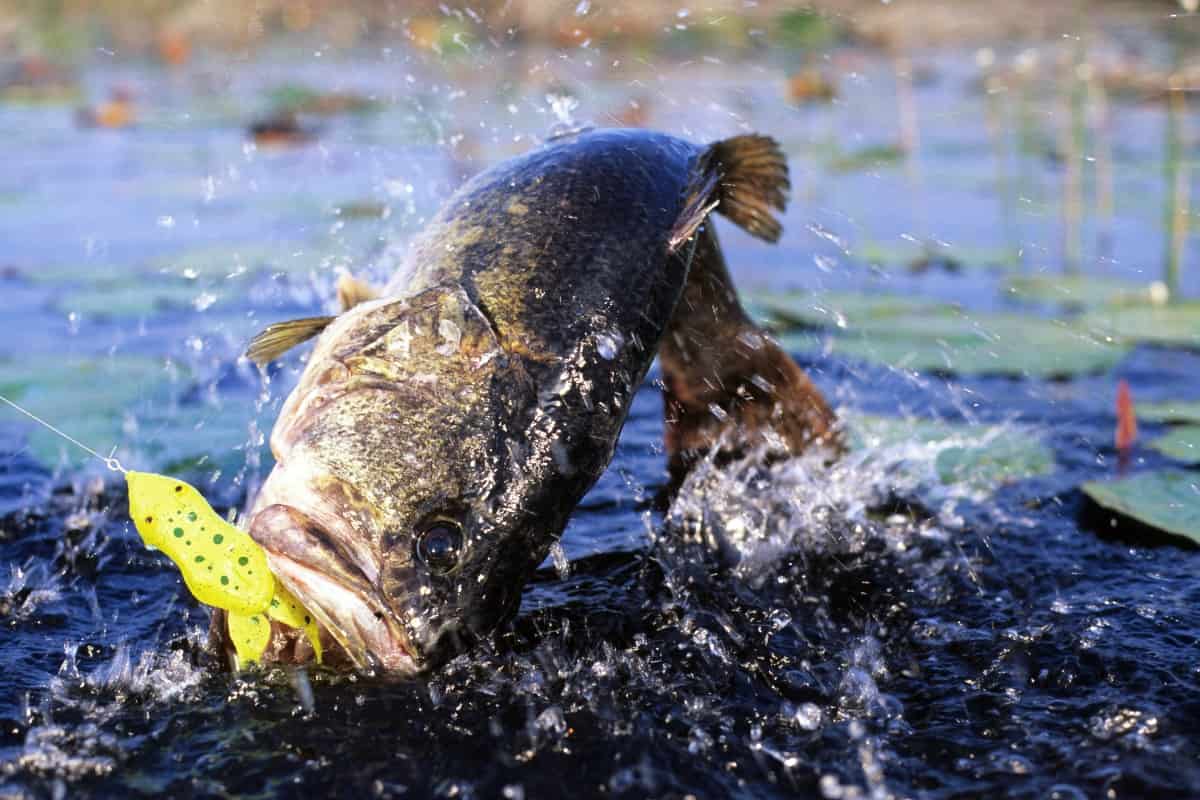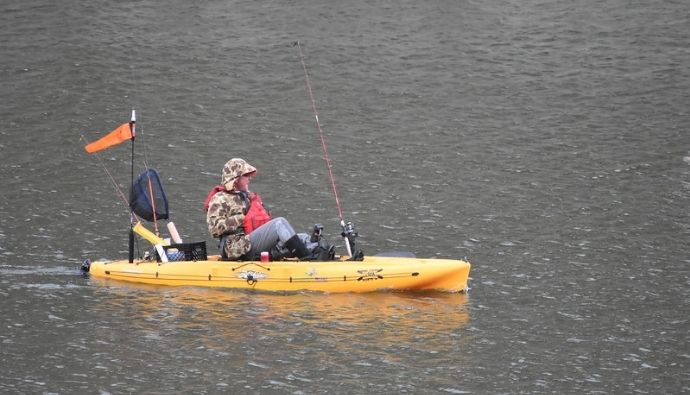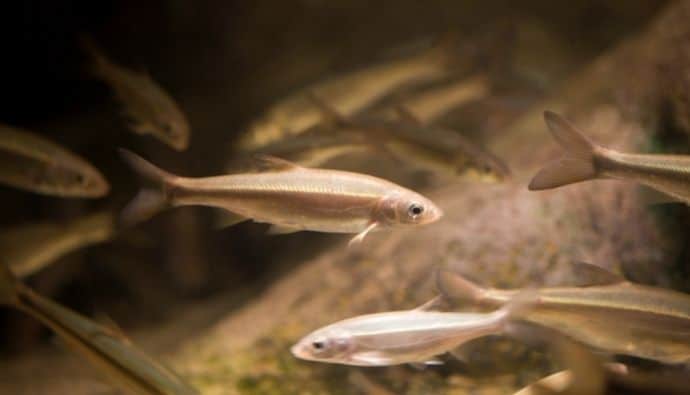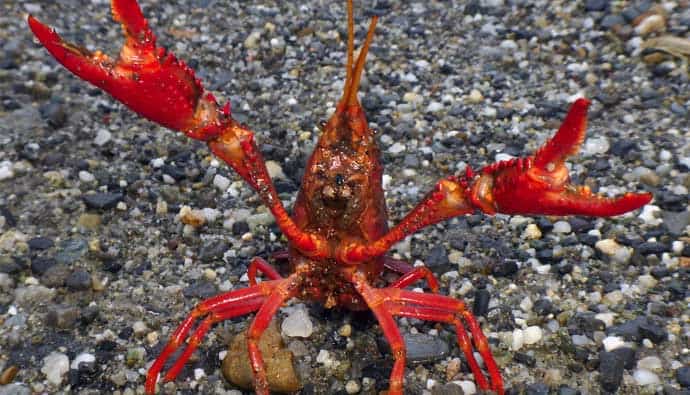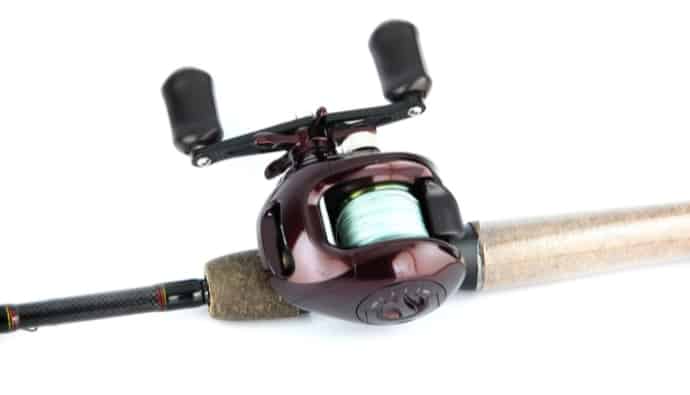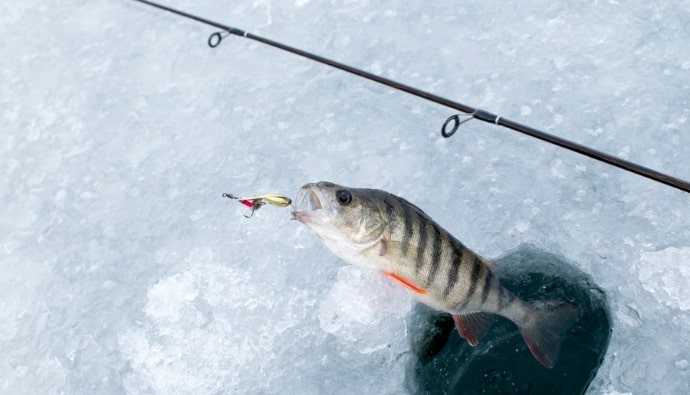Are you tired of spending time and money on the water only to get skunked? It’s common to hear that fishing is about the journey, being in nature, and not just catching fish. However, catching fish does make it more fun. In this guide, we’ll cover tips to help make sure you increase your odds of improving your catch rate.
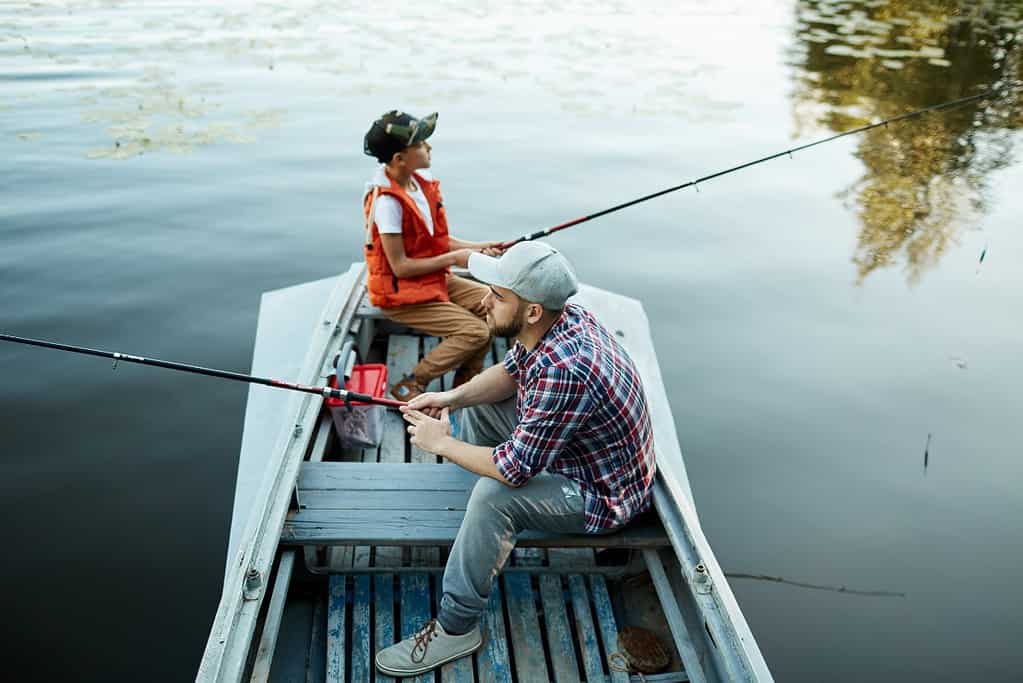
The Short Answer
You might not catch fish due to various factors, such as being in the wrong location, using inappropriate bait, poor fishing technique, or fishing at the wrong time. Improve your chances by researching the fish you’re after to understand their habits, habitat, and preferred bait. Moreover, perfect your casting and reeling techniques and adjust your fishing schedule based on the fish species’ water temperature and feeding times. Fishing is a learning process; every unsuccessful attempt is an opportunity to learn and improve for your next trip.
How Fishing Works
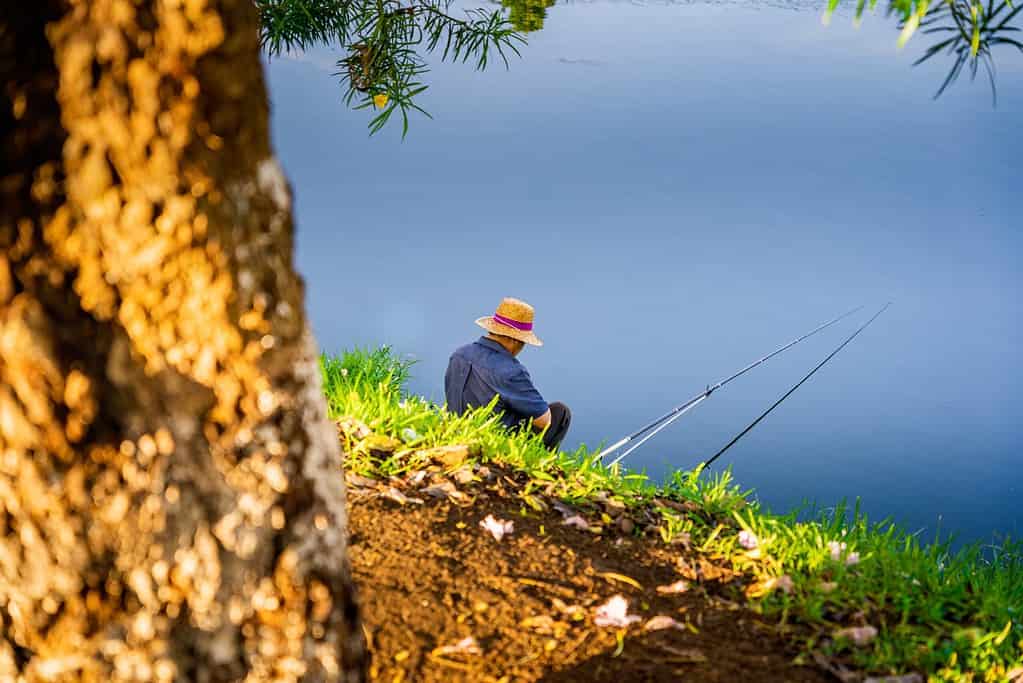
Fishing is like a dance, where you, the angler, lead, and the fish, well, they can follow. But there are a few simple steps that can make you a better dance partner:
- Choosing a Spot: The first step is finding where the fish are. Fish like hanging out in areas with food, cover, and proper water conditions. They could hide under logs, around rocks, or in deeper water. Every body of water is a potential stage for our dance.
- Selecting the Right Bait: Imagine going to a dance, and no one wants to dance with you. That’s what it’s like when you use the wrong bait. Different fish have different preferences for what they like to eat. Some like worms, others like little fish, and others prefer insects. Knowing what your fish likes to eat is like knowing their favorite dance move.
- Casting Technique: Casting is like inviting someone to dance. You need to do it properly, or they won’t accept your invitation. Your cast needs to be smooth and accurate. You develop it with practice, like learning the steps to a complicated dance routine.
Fishing Requires Patience
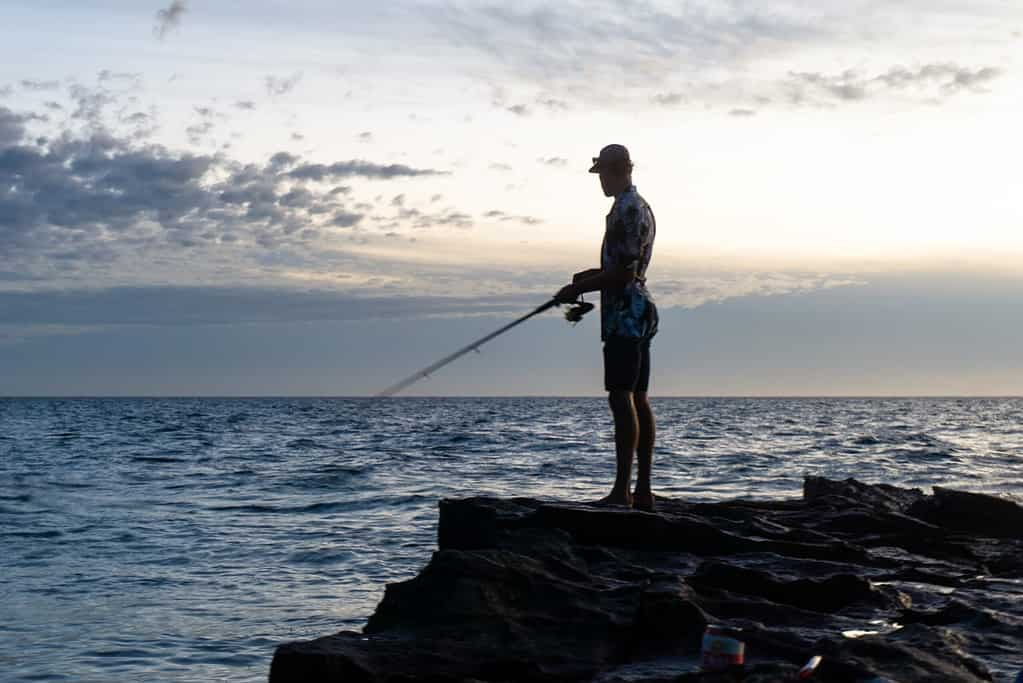
Fishing is not a race. It’s more like a marathon. And as any long-distance runner will tell you, patience is key to catching fish. Here’s why:
- Fish Are Not in a Hurry: Fish live on “fish time,” slower than “human time.” They eat when they’re hungry, rest when they’re tired, and won’t bite just because you want them to. Sometimes, you have to wait for them to be ready.
- Nature Takes Its Time: The natural world follows its own rhythms and timings. The sun rises and sets, the tides come in and go out, and the fish feed according to these natural cycles. To succeed in fishing, you need to sync your timing with nature’s.
- Learning Requires Patience: Fishing is a skill that develops over time. The more you fish, the better you’ll get at understanding fish behavior, choosing the right bait, and casting effectively. So be patient with yourself too.
Remember, fishing is as much about enjoying the journey as the destination. Patience will make your next fishing trip experience more rewarding, and you might even catch more fish!
Reasons Why You’re Not Catching Any Fish
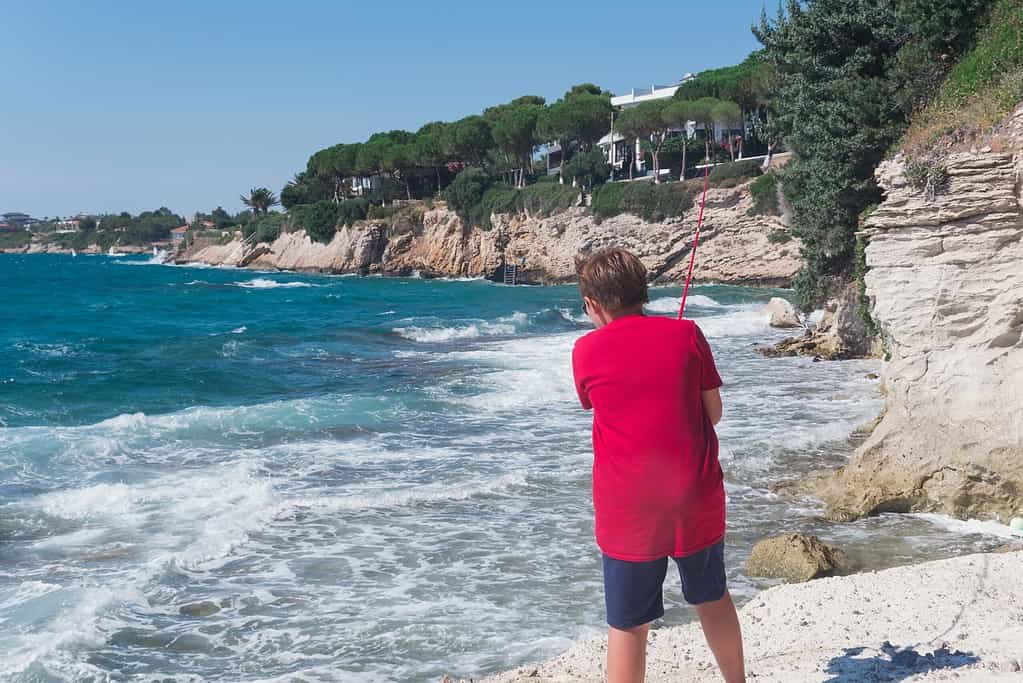
Let’s cover the big reasons why it’s challenging to catch fish. There are a lot of nuances to figure out. Pattern recognition comes when you spend time on the water. Keep your preparation laser-like and efficient so you can go out and test what you’ve learned to see what works and what doesn’t.
Fishing the Wrong Location
Casting your line in the wrong location is like trying to find a dance partner in an empty room. There’s just no one there to dance with!
- Importance of Location: Just like us, fish have their favorite hangouts. These are usually places where they can find food, feel safe, and be comfortable. If your line is not in one of these places, your chances of catching fish are pretty slim.
- Signs of a Good Fishing Spot: Fish hang out around structures like rocks, plants, and sunken objects. They also prefer areas with a change in water depth or flow. Look for these signs when choosing a fishing spot.
- Finding Better Fishing Locations: Ask local anglers, check fishing reports, or use a fish finder. Don’t be afraid to try new spots, and always be observant. Remember, the dance floor is where the fish are!
Choosing the Right Location
Finding the perfect location for fishing is like discovering the perfect dance floor. Here’s how to find it:
- Look for Structures: Fish love to hide around structures for protection and to find food. Look for logs, rocks, or changes in the waterbed.
- Check the Depth: Some fish prefer deep waters, while others like shallow areas. Adjust your fishing location according to the species you’re targeting.
- Study the Water: Look for moving water. Fish often hang out in areas with moving water as it brings food to them.
- Ask the Locals: Local fishermen often have the best knowledge about productive fishing spots. Don’t hesitate to ask for their advice.
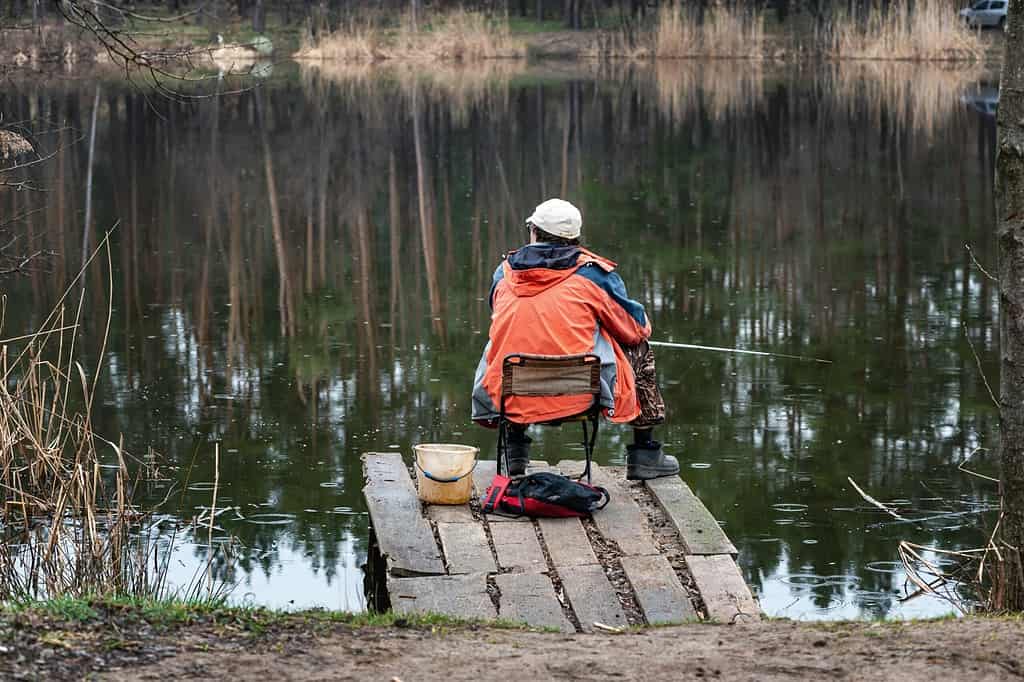
Fishing With the Wrong Bait
Choosing the wrong bait or wrong lures is like trying to dance the waltz to a rock song. It just doesn’t work!
How do you know? If you see other anglers catching fish in the same location but you aren’t, it’s probably because you’re using the wrong lure.
- Importance of Bait Selection: Different fish have different dietary preferences. If you’re not using something they like to eat, they won’t bite.
- Common Bait Mistakes: Using the wrong size or type of bait or not changing the bait when it’s damaged or old are common mistakes.
- Choosing the Right Bait: Research what your target fish likes to eat. Use fresh bait, and change it if you’re not getting any bites.
Selecting the Best Bait
The right bait is like the right song for your dance. It sets the mood and gets the fish moving.
- Know Your Fish: Different fish prefer different bait. Research what your target fish likes to eat.
- Match the Hatch: Use bait that matches the local food source of the fish.
- Use Fresh Bait: Fresh bait is often more appealing to fish. Make sure your bait is fresh and lively.
- Change It Up: If you’re not getting bites, don’t be afraid to switch up your bait, especially if you’re using the same lure.
Using Poor Technique
Poor fishing technique is like having two left feet on the wrong areas of the dance floor.
- Common Casting and Reeling Errors: Overcasting, not letting the bait sink, reeling in too fast, or not setting the hook properly can all scare off fish.
- Improving Your Technique: Practice makes perfect. Work on your casting accuracy and distance, learn to read the water, and master setting the hook. Each fishing trip is an opportunity to improve.
Perfecting Your Technique
There’s an uncanny similarity between nailing those dance moves and acing your fishing technique – both require an enviable blend of time, practice, and a bucket-load of patience. It’s all about understanding the rhythm and going with the flow.
- Mastering the Art of Casting: Let’s face it, your casting accuracy will not improve overnight. It needs practice, a lot of it. You don’t always need a sprawling lake or a bubbling brook to refine your casting skills. A quiet afternoon in your backyard can serve just as well. The key is consistency and repetition.
- The Virtue of Patience: Remember, speed is not your ally in fishing. When you’ve cast your line, resist the temptation to reel it in swiftly. Give the fish some time. Let them discover your bait. It’s a waiting game that requires a calm mind and steady hands.
- Setting the Hook: Much like in a dance where every step counts, in fishing, too, every tug matters. The art of setting the hook requires finesse. When you sense the telltale bite, respond with a firm, quick pull—done correctly. It’s your winning move in this aquatic dance.
Bad Timing
Fishing at the wrong time is like trying to dance when the music has stopped.
- Primetime Fishing Moments: There’s something truly magical about the calm of dawn and the tranquility of dusk, and it’s not just us humans who appreciate these moments. Fish, too, are often on the move, actively feeding during these twilight hours. The cooler water temperatures of early spring and late fall are also dining bell times, with fish surfacing to feast.
- Decoding Fish Feeding Patterns: Fishing is not just a game of chance. It’s a lesson in understanding nature’s rhythms. Fish feeding times are choreographed by an interplay of factors, including the whims of weather, the thermostat of water temperatures, and even the lunar calendar. Yes, even fish have their moonlit dances!
- Seasons and Sea Creatures: Like birds migrating with the change of seasons, fish have their calendar too. Certain fish become more active during specific seasons. Take bass, for instance. They’re quite the spring and fall enthusiasts, showing a higher bite rate. On the other hand, trout are winter lovers, preferring the chill of cooler months for their active spurts. Knowing the seasonal preferences of your targeted fish can make all the difference in your fishing adventures!
Remember, a good fisherman dances to the rhythm of nature, and nature always knows what time fishing is best!
Timing Your Fishing Trips
Another reason for your lack of caught fish might be your timing.
Timing your fishing trips is like timing your entrance to the dance floor. You want to make sure the fish are ready to bite.
- Dawn and Dusk: These are often the best times to fish, as many fish are more active during these periods.
- Watch the Weather: Fish are often more active just before a storm or a cold front.
- Understand Seasonal Changes: Different species of fish are more active during different seasons. Time your fishing trips accordingly.
- Follow the Tides: If you’re fishing in saltwater, the tides can significantly affect fish behavior. High tides are generally more productive.
Adjusting Your Mindset
Not catching any fish can be frustrating, but remember, every failed attempt to catch fish, is a step toward success.
- Embrace Failure: Just like all other things, fishing doesn’t always go as planned. You’ll experience times when you won’t have any catch. But that’s okay as long as you keep trying.
- Learn from Mistakes: Each time you don’t catch a fish, ask yourself why. Maybe the water was too warm, or you were using the wrong bait. Every failure is a chance to learn something new.
- Stay Positive: Stay optimistic and remind yourself that fishing is about the journey, not just the destination. Even the most experienced anglers have days when they don’t catch anything.
Keep Learning
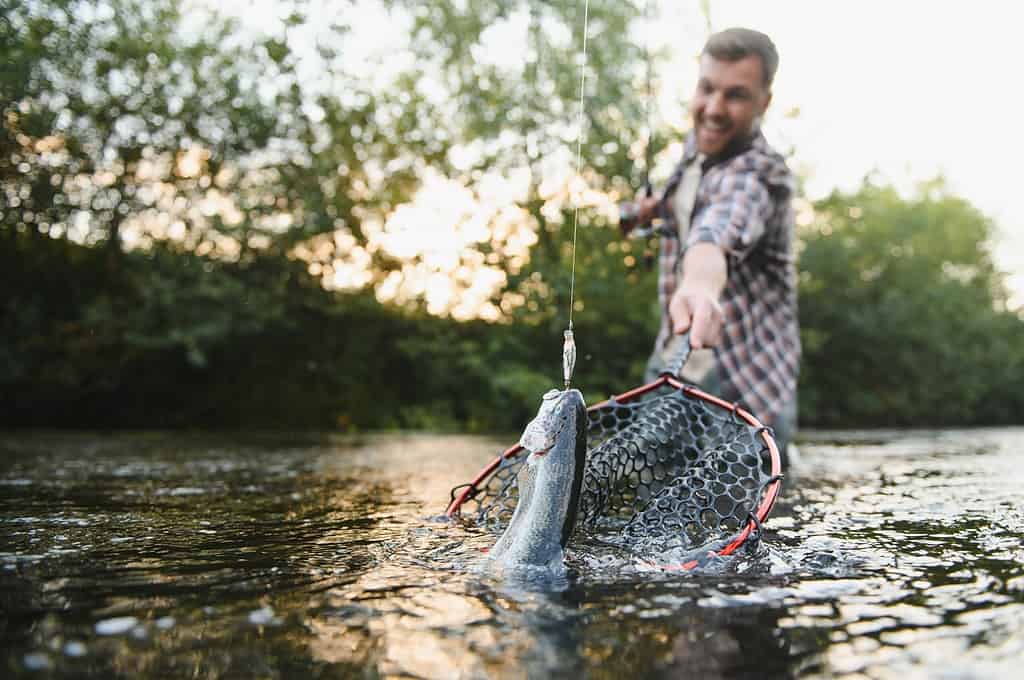
Don’t stop learning. Instead, keep improving your skills. Here are a few resources that you should know:
- Fishing Books: A wealth of knowledge awaits you in the countless books on fishing, each page teeming with invaluable insights, wisdom, and time-tested strategies. For starters, you might want to dive into “The Complete Guide to Freshwater Fishing” for a comprehensive overview or flip through “The Little Red Book of Fly Fishing” to explore the nuances of this specific style. Your fishing exploits are about to become book-worthy tales!
- Online Forums: There’s no better way to learn than from those who have navigated these waters before. Online fishing forums such as BassResource and The Hull Truth serve as bustling digital piers where seasoned anglers and beginners alike share their fishing adventures, successes, and challenges. So, put forth your queries, share your stories, and immerse yourself in this virtual sea of fishing camaraderie.
- Local Fishing Clubs: Joining a local fishing club can provide hands-on learning opportunities and advice from experienced anglers.
- Fishing Courses and Workshops: Look for fishing classes or workshops in your area. They can provide professional guidance and practical experience.
Remember, every great dancer was once a beginner. Don’t be discouraged if you’re not catching fish right now. Keep learning, keep trying, and one day, you’ll find yourself in perfect rhythm with the water, catching fish after fish with ease!
Final Thoughts
Knowing the fish’s favorite song – that is, using the right bait, can make all the difference. Mastering the dance moves of casting and reeling improves your fishing technique, and timing your entrance onto the dance floor – or in this case, timing your fishing trips or fish deeper can make the difference between an empty line and a big fish.
Most importantly, we’ve learned that even when the fish aren’t biting, there’s still a beat to dance to. Every unsuccessful attempt is a step towards success, a chance to learn and improve.
And just like dancing, fishing isn’t just about the result – it’s about the joy of the process. So the next time you’re out on the water, remember to dance to the rhythm of the fishing rod, enjoy the beauty of nature around you, and treasure the journey.
So gear up, get out there, and let’s dance with the fish!





 Facebook
Facebook YouTube
YouTube